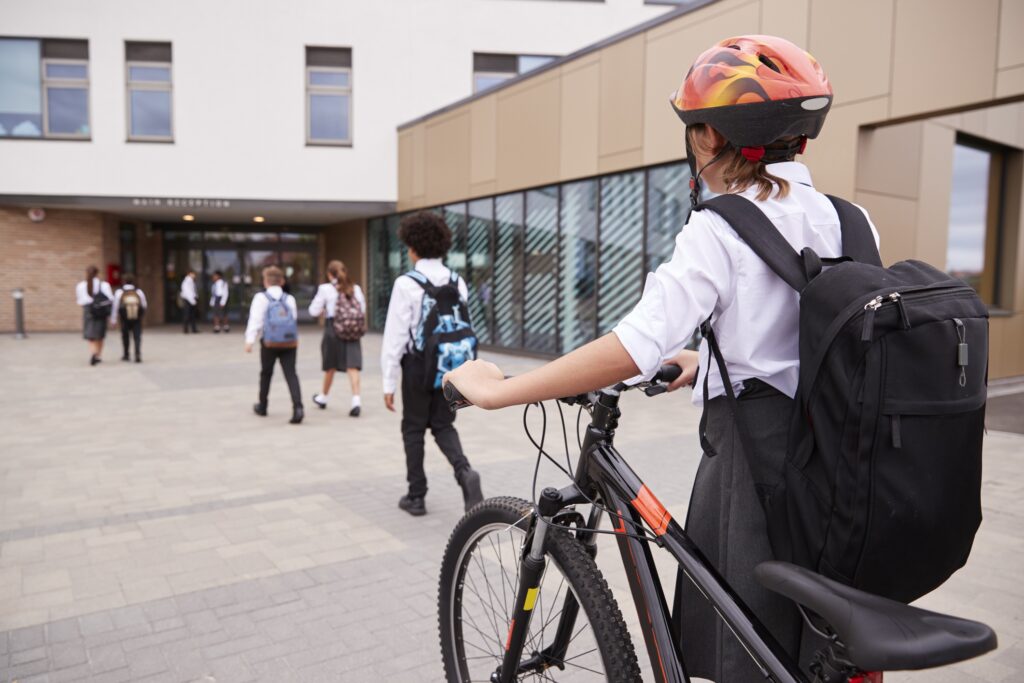Originally published on LexisLibrary and LexisPSL.
Samantha Gilbert interviews Karen May, head of Bindmans Education Law Team.
Local Government analysis: Over 60% of parents choose a state secondary school which is further away from their home, according to the recently published ‘School choice in England’ study. Karen May, associate at Bindmans, sets out how much control parents have over choosing a school for their child, and why the current system is arguably the best fit for local authorities.
What are parents’ rights when it comes to choosing a school for their children?
Section 86 of the School Standards and Framework Act 1998 (SSFA 1998) provides for admission authorities to have arrangements enabling parents—living both in and outside the admission authorities’ area—to express a preference for their child’s school and to give reasons for this preference. This applies in relation to primary and secondary schools.
It is important to note the wording which is ‘parental preference’ which is in contrast to ‘parental choice’ as expressed in the media. Parents who have expressed preference must be given priority over those who have not. SSFA 1998, s 86 also provides that an admission authority does not have to offer a place at a school which a parent has expressed preference for if there is an offer in relation to an alternative school for which the parent also expressed a preference. Commonly the admission form allows for parents to bank their three or four preferences. SSFA 1998, s 86 also provides for the local authorities to provide advice and assistance to parents in relation to preferences.
The parental preference rule in SSFA 1998, s 86 does not apply to:
- nursery education
- special schools
- pupils with education and healthcare plans (where a different procedure applies)
- children who are subject to education supervision orders due to attendance issues
SSFA 1998, s 86(2) requires admission authorities to comply with parental preference unless doing so would cause prejudice to efficient education or the efficient use of resources or if it would be incompatible with admission arrangements based upon ability or aptitude.
It is also important to note that prejudice to efficient education cannot be claimed unless the standard or admission number is exceeded.
According to the ‘School choice in England’ study, over 60% of parents choose a state secondary school which is further away from their home. What are the main reasons for this?
The media may be responsible for indicating to parents that they have more ‘choice’ than they really do. However, parents are well informed and more often do their research visiting schools, considering prospectuses and Ofsted reports and looking at league tables. If a local school is classed as ‘unsatisfactory’, then parents may well make an application for a school further away. However, as oversubscription criteria are often based upon distance, they will not necessarily be successful when applying for a school that is not a school nearest to the family home.
Unfortunately, there has been an increasing trend for individuals to use alternative addresses nearer to successful schools, whether this be a grandparent’s address or renting a property. Local authorities do have strategies to deal with this type of situation, but it is difficult for local authorities and there is certainly reluctance to withdraw places when a child has already started at the school.
Do parents have a remedy if they aren’t allocated their preferred schools?
Parents can appeal to independent appeal panels when they are not successful in gaining a place for their child at the preferred school. The arrangements for appeals rest with the school’s admissions authority under SSFA 1998, s 94 and there is Department for Education guidance contained within the school admissions appeals code. An appeal must be made in writing setting out the grounds of appeal when submitted within the timescale laid down by the admission authority. Legal aid is not available for admission appeal hearings.
The appeal panel will need to ensure the local authority is able to show that the admission of one more child would prejudice sufficient education or the efficient use of resources. If the local authority/admission authority does not discharge this burden of proof, the appeal should succeed. If the panel thinks there would be prejudice, the panel will then need to conduct a balancing exercise to see if the arguments of the parents outweigh prejudice. In addition, before considering the parents’ case, the panel will need to consider whether the admission arrangements were correctly applied. The school admissions appeals code also allows for a procedure where there are multiple appeals relating to the same school, which should be heard by the same panel.
It is also important to note that a different appeal criterion is applied in the case of infant class appeals—ie appeals for five-, six- and seven-year olds. This is based upon the fact that there are legal requirements under SSFA 1998 for keeping infant classes to a class size limit of 30. Where a child is refused a place in an infant school there are only very limited grounds for a successful appeal. It will be necessary for a parent, on an infant class size appeal, to show the child would have been offered a place if the arrangements have been properly implemented or if a lawful approach had been taken.
What are the unintended consequences of allowing parents to choose a school other than their nearest school—in terms of parental behaviour, impact on transport, and the school community where children come from a very wide geographical area etc?
As indicated above, admission authorities are concerned about parents using alternative addresses to get into popular schools that are some distance from the family home. Inevitably, if children are having to travel further then this could mean more cars on the road. Also, it can be more difficult for children to develop social skills and make friends if they are travelling a wide distance to school. It is important to note that if there is a nearer school available and it is a choice to travel the further distance to school, the local authority will not be responsible for funding transport arrangements.
What is the impact of the policy of parental choice on schools which aren’t highly sought after in terms of the pupils that attend, staff recruitment and retention?
Inevitably, house prices increase next to popular schools and those who can afford to do so will move very close to the schools. The policy may well lead to increased inequality across schools, with those schools deemed less desirable being the default of economically-disadvantaged families who are least able to exercise choice. This has a knock-on effect resulting in some schools having higher proportions of Pupil Premium students, poorer attendance, lower achievement at GCSE and low staff retention. Parental preference can lead to higher concentrations of high-achieving students in more affluent areas, creating pockets of educational segregation.
How could the system be improved?
The Department for Education guidance ‘School Admissions Code’ already contains quite a lot of detail upon oversubscription criteria that includes allowing for ‘feeder schools’ and ‘random allocation’. Admission authorities need to comply with the code and ensure that the practices and the criteria used to decide the allocation of school places are fair, clear and objective.
A stricter distance criterion with less possibility for flexibility might be seen as an improvement by some. However, the system of ‘parental preference’ has been with us for many years and recognises the genuine situation of children being individuals and requiring very different types of schools. Smaller schools may serve a particular child and a school specialising in the arts might be suitable for another child. It would be unfortunate to end up with a more restrictive practice, rigidly putting more children into a school that is not right for them.
If you have a case you would like to discuss with our Education Law Solicitors, please get in touch by submitting an enquiry form here.

